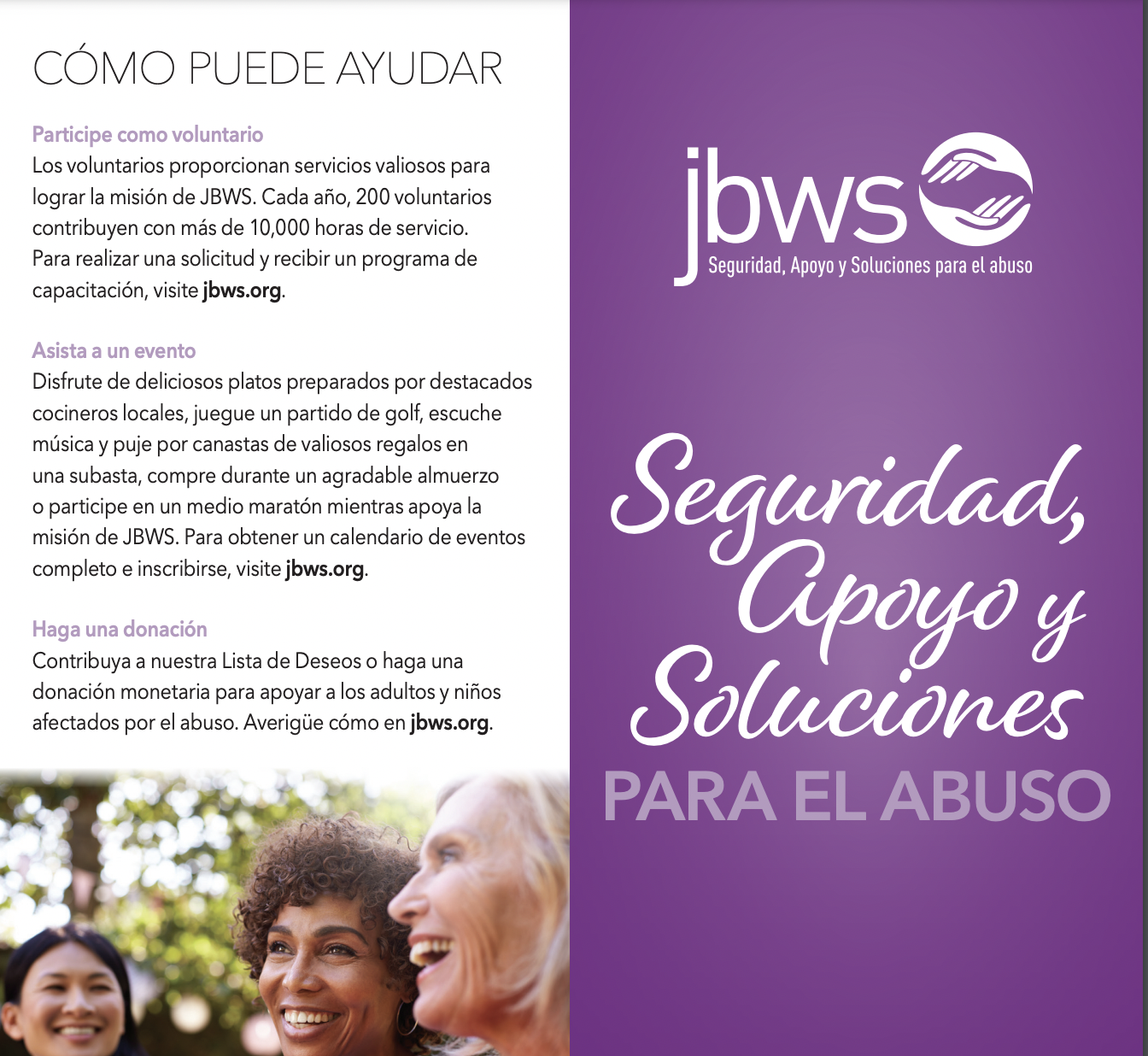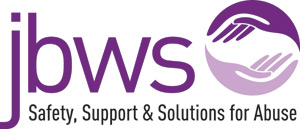Terminology and the Latino/ Latina/ Latinx Community
Hispanic: The term Hispanic predominately refers to language while the terms Latino/Latina/Latinx refer to geographical location. Older generations tend to prefer to identify with the term Hispanic.
Latino: A term that can be used to refer to any person of Latin American origin or descent but can particularly refer to males from this region
Latina: Used to describe women who are of Latin American origin or descent
Latinx/e: Gender neutral terms for people of Latin American origin or descent. The term Latine is used because it flows more naturally in Spanish. This term is typically used by younger generations.
Because JBWS serves all genders, we will be using the term Latinx throughout this page.
Factors to Consider:
Domestic violence is an issue that every single population faces. However, culture can impact how abuse is perceived and how readily someone experiencing it may reach out for assistance. Within the Latinx community, cultural factors such as familismo, religion, and strong gender role expectations can cause additional challenges for people experiencing abuse.

Familismo is a cultural value that refers to a strong focus on the family. It emphasizes “the importance of strong family loyalty, closeness, and getting along with and contributing to the wellbeing of the nuclear family, extended family, and kinship networks.” (Ayón, Marsiglia, & Bermudez-Parsai, 2011). In Latinx communities, this sense of familismo can translate into a need to keep the family unit together at all costs.
Unfortunately, according to The National Domestic Violence Hotline “many believe the family is more important than the safety and comfort of one person, even if they are experiencing abuse.” It's even more challenging for a person experiencing abuse to leave the relationship if their parent or extended family members are encouraging them to "keep the family together" for the sake of their children.

In keeping with this commitment to family, there can be strong gender role expectations in heteronormative relationships. In these traditional dynamics, the male partner is the primary financial earner while the female partner is responsible for maintaining the cohesiveness of the family unit.
According to Esperanza United, “for many Latinas their role as mothers is still the most important aspect of their lives, a responsibility against which most of their decisions and actions are weighed.”
An adherence to strict gender roles may increase the likelihood of financial abuse because the female partner may be excluded from having any input or control over the family’s financial decisions. It can also complicate a person’s ability to leave an abusive relationship because they may not have the financial ability to care for themselves or their children.

In many Latinx communities, religion plays a critical role. According to the Pew Research Center, about 48% of Latinx individuals identify as Catholic and another 19% identify as Christian Protestant. While religion can be a source of great comfort and peace for people, certain religious beliefs may prevent people from seeking services when they are experiencing domestic violence.
For instance, the sanctity of marriage, or a belief that marriage is a holy, sacred, and blessed covenant relationship instituted by God, may prevent people from reporting abuse out of fear that it could result in either divorce or separation. As noted by Esperanza United, this could be further compounded by negative or uninformed reactions by religious leaders who may make survivors feel “responsible for making their marriage work regardless of the violence they are experiencing.”


Barriers to Assistance:
Latinx survivors report feeling more comfortable seeking informal support from their network of family members, friends, or neighbors instead of seeking formal services (Sabina, Cuevas, & Schally, 2012). This is particularly true among undocumented Latinx people who were more likely to seek informal support when compared to Latinx people with citizen or resident status (Mowder, Lutze, & Namgung, 2018).
Fear of Deportation: As reported by Esperanza United, nearly half of Latinas in one study did not report abuse to authorities likely due to “fear and lack of confidence in the police, shame, guilt, loyalty and/or fear of partners, fear of deportation, and previous experience with childhood victimization.” For many undocumented Latinx people, there is a salient fear of deportation when seeking help from social services. Many are reluctant to speak of their immigration status out of fear of being deported and removed from their family in the United States.
Immigration Status: Additionally, an abusive partner may use a person’s immigration status as a powerful method of control. The abusive partner may threaten to report the person experiencing abuse to the U.S. Immigration and Customs Enforcement if they leave the relationship.
Language Barriers: If the person experiencing abuse is predominately or solely Spanish speaking, leaving the relationship becomes even more difficult if services are not available in their native language. If a person’s local domestic violence agency does not have Spanish speaking staff, it can cause hesitation in reaching out for help. They may not feel comfortable expressing the abuse they experienced in English.

How is JBWS helping:
To accommodate the needs of our Hispanic/Latinx participants, we have Spanish speaking staff in all of our direct service programs. We offer counseling groups in Spanish for people who have experienced abuse in their relationships and we offer abuse intervention programming in Spanish through our Jersey Center for Non-Violence.
As part of providing culturally specific services to those impacted by domestic violence, JBWS has a partnership with the Morris County Organization for Hispanic Affairs through our Morris Family Justice Center. This partnership helps us us assist with issues related to the inersection of domestic violence and immigration. Additionally, JBWS does not require documentation or the disclosure of immigration status to utilize any of our programs.
What If I Recognize Concerning Behaviors In Myself?
As is true for people regardless of their identities, people in the Latinx community may use abuse in their relationships. If you recognize any abusive or controlling behaviors in yourself, then JBWS can help: jbws.org/jcnv or 973-539-7801

